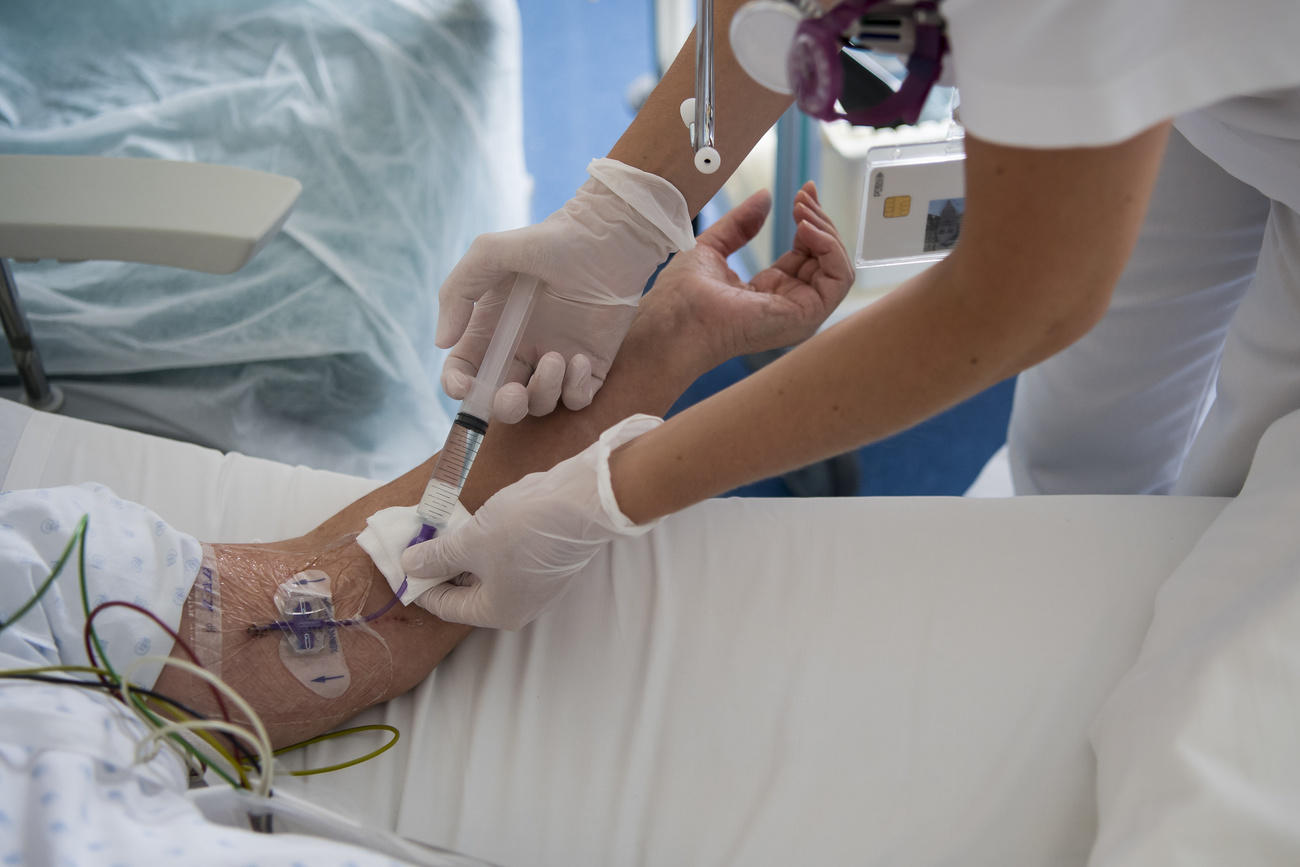
Vitamin injections: a worrying practice

The use of vitamin injections to alleviate fatigue or hangovers is growing rapidly in French-speaking Switzerland. The trend raises many questions about its real benefits and potential health risks.
More and more specialised “clinics” are offering infusions of vitamin solutions, sometimes with nursing services available at home 24/7 to perform the infusions. The practice is often aggressively promoted on social networks, and is aimed primarily at a young, affluent audience.
Swiss public television RTS identified clinics active in this niche in Lausanne, Geneva and Gstaad. But the practice is not confined to Switzerland. It’s an international phenomenon, a business popularised by celebrities, influencers and jet-setters.
Risk of kidney stones
Are the benefits of these infusions real? According to Pedro Marques-Vidal, professor at Lausanne University Hospital (CHUV) there are no studies to prove it. Worse still, the very high dose of vitamin C in some infusions presents proven risk of the formation of very painful kidney stones.
Just as worrying for Marques-Vidal is the presence of drugs in certain cocktails to combat hangovers, such as painkillers and anti-nausea drugs. He considers these “hangover infusions” to be unethical, and sees them as an incentive to binge-drink.
CHF1500 packages
The cost of these injections is also being criticised. Some “clinics” offer packages costing up to CHF1,500. A simple infusion of saline solution (salt water and minerals) can cost around CHF280, while serum sachets similar to these injected solutions can be purchased for CHF2.30.
When contacted on this subject, Alexandra Miles, from Yuboost in Lausanne, justifies these prices by explaining that they cover not only the medical equipment, but also the consultation and nursing time required for the infusion. As for patient safety, she responds that a “complete medical questionnaire” is filled out before each injection. She adds: “All the vitamins, minerals and medicines we use are authorised on the Swiss market and are included in the Swissmedic catalog.”
Doubts persist, however, particularly at the CHUV, which is warning of the risks associated with the use of these infusions for non-medical reasons. A medical publication on this subject is planned.
Adapted from French by DeepL/ac

In compliance with the JTI standards
More: SWI swissinfo.ch certified by the Journalism Trust Initiative





























You can find an overview of ongoing debates with our journalists here . Please join us!
If you want to start a conversation about a topic raised in this article or want to report factual errors, email us at english@swissinfo.ch.